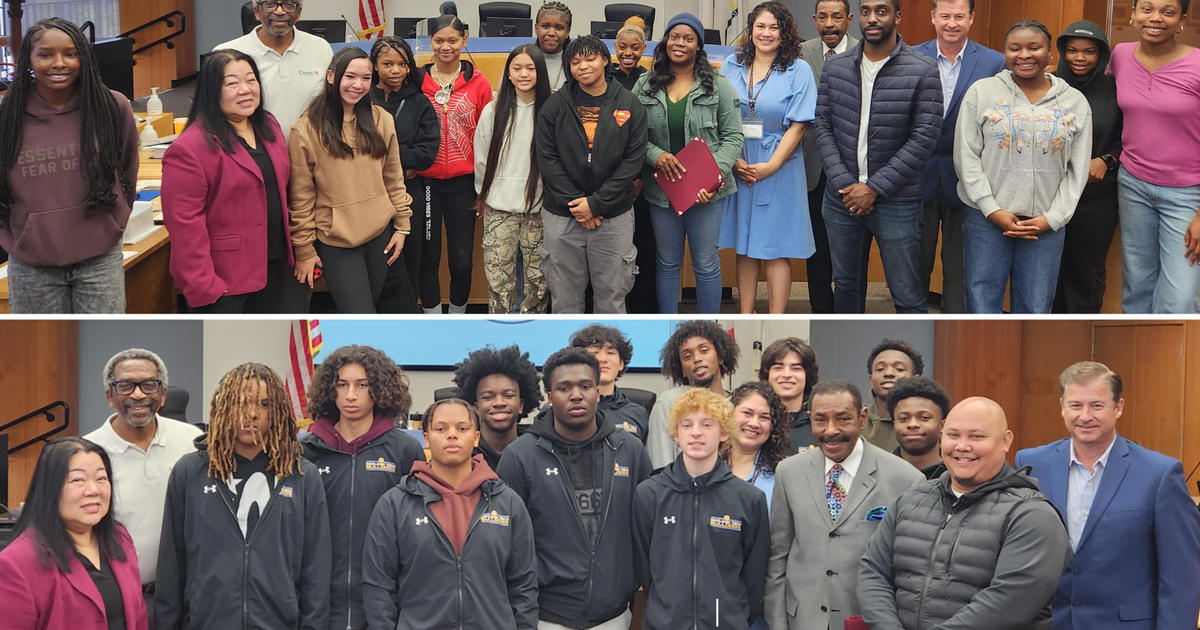KCBS Cover Story: Educators Say Online High School Programs Need Overhaul
Part 4 of Doug Sovern's KCBS Cover Story series on online high school classes. | Part 1 | Part 2 | Part 3
ALAMEDA (KCBS) - Tens of thousands of California high school students make up for failed classes by taking them again online with results that educators and students alike acknowledge demonstrates the need to re-think remote education.
"I think it should be changed so you learn from it, but I don't think it should be taken away because it does help people get their credits back," said Brittany McGovern, an Alameda High School student who had a frustrating experience trying to re-take failed math and social studies classes.
McGovern described being surrounded by so many unfocused students that she just stopped going to the computer center to finish her Geometry and Ethnic Studies make-ups.
KCBS Cover Story: Educators Say Online High School Programs Need Overhaul
Her experience captures the challenge inherent in tailoring online education to the Facebook and YouTube generation of digital natives who grew up on the Internet, said Sally Murphy, senior director of undergraduate studies at Cal State East Bay.
"The online environment for a lot of high school students is a social environment. It's not a work environment. Students who see the computer as a playground are less likely to take it seriously," she said.
The result is students who get through classes without remembering what they were supposed to learn, Murphy said.
Two-thirds of the incoming freshmen at Cal State University campuses need to take remedial classes because their high schools gave them a diploma, but not an adequate education.
Critics say too many high schools feel pressured to raise graduation rates and let students make up classes by taking poorly supervised online courses.
When properly supervised though, former Alameda principal Mike Cooper believes, cyber high can work by keeping kids who might otherwise drop out from going over the edge academically.
"I really think there's a place for it, but to call it learning and to call it a rigorous curriculum is, I don't think, truthful," Cooper said.
"It needs to be watched and monitored and make sure that there's actual learning going on, they're not just giving credits away."
The boom in online learning can be attributed in part to how little it costs districts that according to Murphy, the Cal State East Bay administrator, now need to refocus on making sure kids actually learn and not just pass.
"That means a smaller classroom. That means more teacher time. It means that we need to give more money to K-12 education," she said.
Cheryl Foster, principal at Raoul Wallenberg High School in San Francisco, said educators everywhere understand that many California kids are going off to college unprepared.
"We are working on it," Foster said, adding that no district had solved the problem.
Cyber High and other online education services were not intended to replace face-to-face learning, said Dr. Michael Mueller, state director of Cyber High.
Mueller said the California PASS Program was always envisioned as a second-chance to keep kids from dropping out of school.
"I don't think we're designed to be the high school experience. We're just designed to help out in those little areas that kids need that extra push to get them over the graduation finish line," he said.
(Copyright 2013 by CBS San Francisco. All Rights Reserved. This material may not be published, broadcast, rewritten, or redistributed.)



